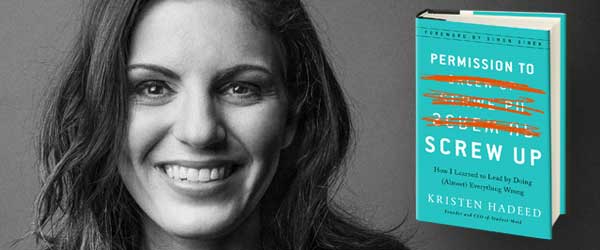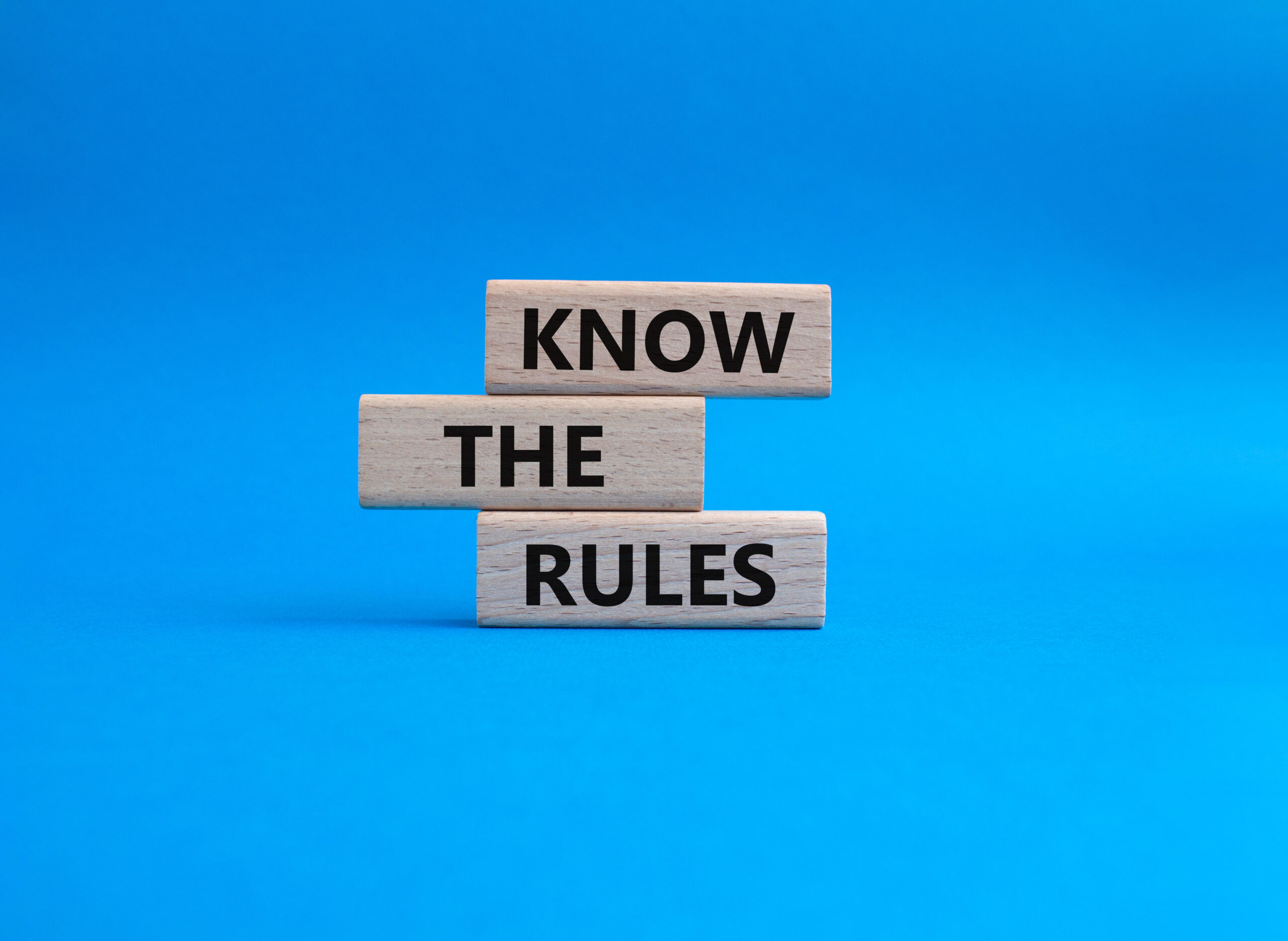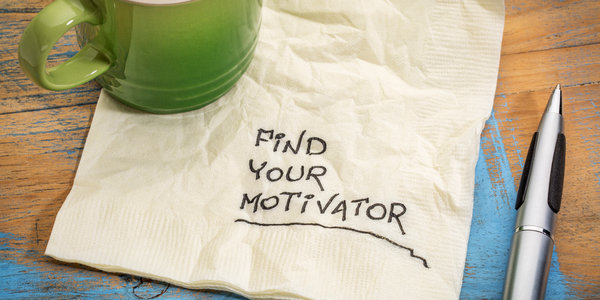Derek Christian speaks with Kristen Hadeed about her new book and the lessons she learned in building Student Maid.
Last October Derek Christian sat down for a Facebook Live interview with Kristen Hadeed on the event of publication of her memoir, Permission to Screw Up: How I Learned to Lead by Doing (Almost) Everything Wrong. Below is a transcript from the first part of that talk. Kristen is the founder of Student Maid in Gainesville, FL,. Her company only hires students who meet a minimum 3.5 GPA requirement. You can learn more about Kristen’s book in this press release previously published by Cleaning Business Today.
DC: Thanks for talking to me Kristen. I am really excited about the book that came out. Can you give me a little background on why you wanted to write it?
KH: Sure, well I knew I had always wanted to write a book but I didn’t know what it would be about. I would come home from work and write about things that had happened throughout the day, and I actually sent that off to a publisher, but they never got back to me. It was a good thing, because it was really bad. And then, I gave this speech at a conference a couple years ago, and the CEO of my publishing house just happened to be in the audience. And so, after I spoke he said “I really want you to write a book.” And it was a dream since I had always wanted to write one, and we shook on it. But then I was like, “But wait, what I am going to write about?” So, I started writing about millennials, and that didn’t really feel right. And then, I just started sharing the story of Student Maid and all the success we had in the business, and that didn’t feel right either. It felt very empty; I thought “What are people going to get from this story?” So then, I had dinner with a friend of mine who had written a lot of stories, and he said something to me that really changed the direction of everything. He said that: “In my experience, you know that it’s the right book if it’s really hard to write.” . . . . . . . . . . . . . . And that’s how I landed on the theme of talking about my failures and my screw-ups and how making those mistakes really helped me become the leader I am today. And it was really hard to write, because I had to think about the things I did that were wrong. And sometimes the stories that I shared won’t put me in the best light, and it’s embarrassing, but I think that it’s important to share those stories. Because that’s how we learn how to lean, and how we learn how to build a team, and build a company.
DC: Well great, and I love that you led with your most embarrassing one. The story of you with your feet up, and relaxing like you didn’t have a problem in the world, and all your people were off scrubbing away.
KH: Yeah, so you see the book opens with “I call them the 45”, and it was my first real big screw-up as a leader. I had a contract to clean, hundreds of apartments, I hired 60 students. I was, 21 and didn’t know anything about leadership. And while they were cleaning, I was sitting in the air conditioned clubhouse with my feet, propped up, and eating a Caesar salad. Not because, you know, I was thinking I was better than them, just in every movie I had ever seen the boss is in the office. And I didn’t really know what I was supposed to be doing as a leader. And after a few days, 45 of the 60 came to the clubhouse and they quit at the same moment. And I mean, it was so shocking and I didn’t know what to do and I was freaking out because there were so many apartments left to clean. And that was kind of the moment for me that really inspired my obsession with learning how to be a better leader, and how to build a better company that people didn’t want to leave.
DC: Now you previously employed all these students, all millennials, and as you know millennials are famous for not liking to work. So, how did you get millennials to scrub toilets? In the industry, I own parts of several maid services, and now a handyman service, and most of the owners I talk to I won’t even meet unless they’re under 30, because it’s just a waste of my time.
KH: Well, you know I think sometimes we let generational differences and stereotypes kind of divide us. I like to think that anyone, no matter what generation you are a part of wants to feel valued and significant. Like their work matters, like they are invested in, and cared for, and supported, so the challenge is how do you make someone feel that way while they are doing someone else’s dirty work. And whether they are 19 years old, or 60 years old, you know I think both want the same feeling, so how do you give that to them? It was hard to figure out, but there are a few ingredients in our culture that I believe no matter who you are, you know it would feel good to have these things in your environment. One of those things is empowering people, and really trusting them to make their own decisions, and really allowing them room to mess up, and to fail. Maybe believing in them before they’ve really proven themselves, and giving them the benefit of the doubt, also empowerment is a huge part of our culture. Another piece is feedback and recon ignition. We teach all of our students when they first start, how to recognize people in a meaningful way, how to give constructive feedback in a way so that they’re learning how to conflict, and that makes people feel proud when they can productively confront somebody. And also, they’re learning how to recognize each other because, you know when you’re not in the house you don’t always get to see all the amazing things they do, and you have to rely on the customer to tell you those things. So, we wanted to give our people a tool to recognize each other, so when they see their teammate going above and beyond they can recognize them since that is a huge part with dealing value and feeling like you contributed. So, empowerment, feedback & recognition, and relationships, And I think this is one that’s affected all generations, I think technology has really impacted the way we interact as humans. I think it’s supposed to keep things productive and efficient but unfortunately we’ve also allowed becoming the way we communicate- you know in means of communication. . . .So we really try to make an effort to focus on relationship building, we don’t allow phones in meetings, we don’t text unless it’s something like: What’s the address something that doesn’t matter. We really force that face-to-face interaction so that people feel like they’re a part of a family, and they have friends and that’s a reason you want to come to work. So those are the 3 things that I would say are the foundation of our culture and what make you want to come back and clean every day.
DC: Now, I find it interesting that you spend a lot of time teaching people how to communicate, how to problem solve, how to get along with teammates. I hear all the time from business owners about my job, I’m not supposed to be their parent. They should know these skills. Why did you think it was your job?
KH: Well, I think for me it was unintentional at the beginning. Because I was so young, and inexperienced and I had to learn myself how do I confront someone? How do I recognize someone? How do I… And as I learned these things, I thought that wouldn’t it be great if I could teach those to my people and have them learn these things here, so that when they graduate and leave the company and start their first real job, they have that experience in those skills. So, that’s how it started and now I would say we’re more of an education company that a cleaning company, sometimes we forget that we’re a cleaning company. Because we actually have curriculum, they take classes on how to listen, and how to build a meaningful relationship, and how to be vulnerable, and what empathy is. And you know how to find out what their strengths are and convey those to people, and to find ways to inject them into their work. So, these things are very expensive and Student Maid is almost like a social nonprofit because all the profits that we make, they all go back into the company and we put it towards curriculum like this and we pay them to attend these things. And it’s expensive, and I think that our mission is that they will leave our people better than when they came in.
Kristen Hadeed is CEO & Founder at Maidsuite, Speaker at CAMPUSPEAK and Founder at Student Maid, Inc.
Derek Christian is a partner in Castle Keepers, one of the largest and fastest growing independent house cleaning companies in America. Derek is Co-publisher and Director of Business Development & Sales for Cleaning Business Today, and a partner in Cleaning Business Builders. He founded My Maid Service in Cincinnati, OH and spent twelve years at P&G working on household cleaning products.
 Cleaning Business Today is a publication of Tom Stewart and Derek Christian, who also partner in Castle Keepers, one of the fastest growing professional house cleaning services in the US.
Cleaning Business Today is a publication of Tom Stewart and Derek Christian, who also partner in Castle Keepers, one of the fastest growing professional house cleaning services in the US.






